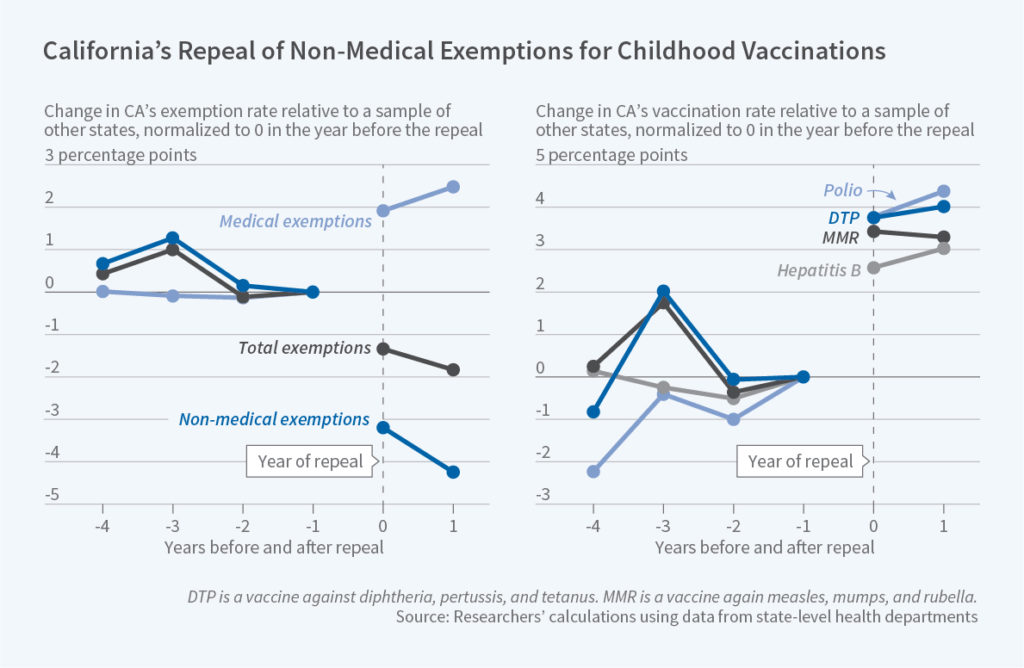Does eliminating vaccination non-medical exemptions improve vaccination rates?
Not surprisingly, the answer is yes, but not by as much as one might guess. In part due to a measles outbreak at Disneyland, California outlawed non-medical exemptions for vaccinations. An NBER working paper by Richwine et al. (2019) provides background on the situation in California prior to enacting the ban.
Prior to the policy change, California had higher overall exemption rates than the control states (5.7 percent vs. 2.6 percent), lower vaccination rates (92.7 percent vs. 97.0 percent, for Hepatitis B vaccines, for example), and higher rates of vaccine-preventable disease outbreaks (230 cases vs. 136 cases per 1 million population)
With the ban, one would expect vaccinations rates to increase 5.7% in a perfect world (since non-medical exemptions are eliminated). Of course, no ban is perfect. Plus, the Richwine paper fines some offsetting effects.
…there was a 3.4 percentage point differential decline in non-medical exemptions in California following the policy change. This decrease was substantially offset by a 2.1 percentage point increase in medical exemptions, which was concentrated in the counties with the highest initial rates of non-medical exemptions. On net, the researchers estimate that the policy change generated a 1.3 percentage point decline in overall immunization waivers.
In short, the increase in medical exemptions partially offset the number of non-medical exemptions. It could be the case that lenient physicians allowed for medical exemptions in cases where that was not the case. For instance, if you are a primary care physician, one good way to lose a patient is to force them to be vaccinated against their will. Thus, the non-medical exemption is effective, but not as much as one may have thought.
Source:
- Richwine CJ, Dor A, Moghtaderi A. Do Stricter Immunization Laws Improve Coverage? Evidence from the Repeal of Non-medical Exemptions for School Mandated Vaccines. National Bureau of Economic Research; 2019 May 16.
* This article was originally published here


No comments: